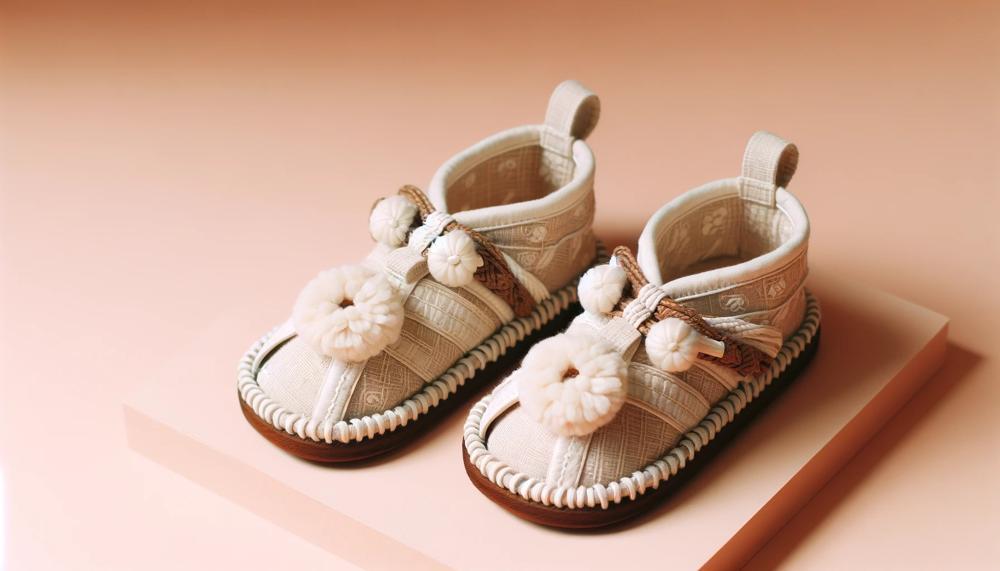Step into the world of Fufu Shoes, where fashion and comfort collide in the most perfect way. Are you tired of having to choose between style and comfort when it comes to your footwear?
Fufu Shoes has mastered the art of creating trendy and comfortable shoes that will elevate any outfit.
Here’s what you need to know about Fufu Shoes:
- A brand renowned for its innovative designs and use of high-quality materials.
- A wide selection of styles for both men and women, from casual sneakers to elegant dress shoes.
- Each pair is carefully crafted with advanced technology to provide maximum comfort and support.
- Versatile enough for any occasion – whether it’s a busy day at work or a fun night out.
- Affordable prices without compromising on style or quality.
Why settle for uncomfortable shoes when you can have the best of both worlds with Fufu Shoes? Keep reading to discover more about this revolutionary footwear brand.
What Are Fufu Shoes: Understanding the Basics
Contents
- 1 What Are Fufu Shoes: Understanding the Basics
- 2 The Origin of Fufu Shoes and Their Popularity
- 3 Signs of Fufu Shoes: How to Identify Counterfeit Footwear
- 4 The Risks and Consequences of Buying and Selling Fufu Shoes
- 5 Tips for Avoiding Fufu Shoes: How to Shop Wisely
- 6 Health Hazards Associated with Wearing Fufu Shoes
- 7 Other Slang Terms for Counterfeit Products Besides “Fufu”
- 8 Famous Brands and Types of Shoes Commonly Counterfeited
- 9 Conclusion
Fufu shoes, crafted for ultimate comfort and support, are made with a unique foam that adapts to the shape of your feet.
Originating from Africa and the Caribbean, these shoes have gained popularity for their ability to withstand long walks with ease. Available in a variety of styles, materials, and sizes, there is a perfect fit for every foot.
These handmade shoes may come with a hefty price tag, but their superior quality and unmatched comfort make them a worthwhile investment. However, it’s crucial to be cautious of fake fufu shoes that imitate original brand-name shoes but may lack the same features and durability.
To protect yourself from purchasing counterfeit fufu shoes, it is recommended to only purchase from reputable retailers and carefully examine the product before making a purchase.
The Origin of Fufu Shoes and Their Popularity
Fufu Shoes, a popular footwear choice today, have an origin that goes back to the 16th century in Ghana. They were initially created with rubber as a medicinal remedy.
However, it wasn’t until the 1960s that they became a trending fashion item, all thanks to the women of Ghana who saw an opportunity for economic empowerment and started selling them.
The widespread popularity of Fufu Shoes can be accredited to their adaptability, comfort, eco-friendliness, and their embodiment of African culture and skill in the fashion world.
One might wonder how a simple pair of shoes could hold such significance. Well, let me tell you a story about how Fufu Shoes became my go-to choice for every occasion. I first came across them on a trip to Ghana, where I was looking for a souvenir to take back home.
As soon as I slipped my feet into a pair of Fufu Shoes, I was amazed by the comfort and support they provided. Not only that, but I also learned about the rich history and cultural importance behind these shoes.
The uniqueness of Fufu Shoes lies in their versatility. They can be dressed up or down, making them suitable for any event. Whether it’s a casual day out or a formal gathering, Fufu Shoes have got you covered. What’s more, they are made from all-natural materials, making them eco-friendly and sustainable. As someone who is conscious about the environment, this was a huge selling point for me.
But beyond their practicality and style, Fufu Shoes also represent the craftsmanship and heritage of African culture. Each pair is handmade with intricate designs and patterns, showcasing the skill and talent of local artisans. By wearing Fufu Shoes, I not only support small businesses in Ghana but also proudly display the beauty and diversity of African art.
Signs of Fufu Shoes: How to Identify Counterfeit Footwear
The proliferation of counterfeit footwear in the fashion world has made it increasingly challenging for buyers to distinguish between genuine and fake products. This is especially worrisome for those seeking to acquire Fufu Shoes, a highly sought-after and culturally significant footwear option.
To avoid falling prey to fraudulent sellers, there are several key indicators to be mindful of when purchasing Fufu Shoes.
- Assess the Logo: One of the most telltale signs of counterfeit footwear is a poorly executed or inaccurate logo. Fufu Shoes boast a distinctive “F” logo that should be consistent and well-defined on the product. If the logo appears distorted, smudged, or completely missing, it is highly likely that the product is a fake.
- Inspect the Stitching Quality: Authentic Fufu Shoes are handcrafted using traditional techniques, resulting in precise and uniform stitching. In contrast, counterfeit products often exhibit shoddy and inconsistent stitching, which is a clear indication of inferior quality.
- Examine the Materials Used: Fufu Shoes are renowned for their premium materials, including leather and sustainable fabrics like jute and raffia. On the other hand, counterfeit products may employ cheap materials that not only cause discomfort but also wear out quickly.
- Purchase from Authorized Retailers: To ensure authenticity, it is always advisable to buy Fufu Shoes from authorized retailers or directly from the brand’s official website. This guarantees that you are acquiring a genuine product while also supporting ethical practices in the fashion industry.
The Risks and Consequences of Buying and Selling Fufu Shoes
| Anticipated Dangers | Implications | Safety Measures |
| Fake Products | Squandered funds, supporting illegal activities, receiving subpar products | – Buy from authorized merchants – Look out for key indicators such as logo quality, stitching consistency, and materials used – Research and validate the authenticity of the product before purchase – Avoid purchasing from dubious or unfamiliar sources |
| Mistakes in Procurement Process | Wasted time and money, incorrect products or quantities received | – Follow standardized protocols for procurement processes – Use modern tools like automation software instead of spreadsheets – Improve communication with end-users to ensure accurate product purchases – Strongly evaluate risks and have contingency plans in place |
| Unreliable Suppliers | Late deliveries, poor quality products, breakdown in supplier relationships | – Conduct thorough research and background checks on potential vendors – Foster collaborative relationships with reliable vendors – Utilize procurement technology to closely monitor supplier performance – Have backup suppliers in case of emergencies or issues with primary supplier |
| Talent Scarcity | Inability to source necessary skills or staff for procurement processes | – Invest in training and development for current staff – Consider outsourcing certain procurement tasks to specialized agencies or consultants – Continuously keep up with market trends and adjust staffing needs accordingly – Utilize technology to streamline processes and reduce reliance on manual labor |
| Legal Obligations | Lawsuits, fines, legal troubles | – Stay updated on relevant laws and regulations related to procurement – Have legal counsel review contracts and agreements with suppliers – Ensure compliance with all legal requirements in the procurement process – Have contingency plans in place for any potential legal issues |
To safeguard against potential hazards and repercussions of buying and selling Fufu shoes, individuals and businesses must prioritize efficient risk management in their procurement processes.
This includes thorough research, utilizing technology and standardized protocols, fostering relationships with reliable suppliers, staying up-to-date on legal requirements, and continuously assessing and adapting for potential risks.
Tips for Avoiding Fufu Shoes: How to Shop Wisely
In order to avoid falling victim to fufu shoes, it is essential to be aware of the telltale signs of counterfeit products and conduct thorough research before making any purchases.
To help you shop wisely and steer clear of fufu shoes, here are some tips to keep in mind:
- Examine the materials: Fufu shoes are typically made with low-quality materials that lack the same level of comfort and support as genuine shoes. Take a close look at the materials used in the shoes and ensure they are of high quality.
- Know the price range: If a deal seems too good to be true, it most likely is. Fufu shoes are often sold at significantly lower prices than legitimate shoes, so be wary of suspiciously low prices.
- Research the brand: Before making a purchase, research the brand and check their reputation. Look for customer reviews and ratings to ensure that the brand is authentic and trustworthy.
- Inspect the product: If possible, examine the shoes before purchasing them. Watch out for any signs of poor construction, incorrect logos or branding, and lack of authenticity tags.
- Be cautious when shopping online: When shopping online, make sure to buy from reputable retailers. Check for seller ratings, product descriptions, and customer reviews to distinguish between genuine and counterfeit products.
- Understand the risks: Fufu shoes can pose health hazards due to their subpar materials and lack of safety standards. It is crucial to be aware of these risks and avoid purchasing fufu shoes.
- Be familiar with slang terms: Along with “fufu,” there are other slang terms used to refer to counterfeit products such as “knockoffs,” “bootlegs,” and “dupes.” Familiarize yourself with these terms to avoid unknowingly purchasing fufu shoes.
By following these tips, shoppers can ensure they are not falling for fufu shoes and instead make informed purchases from reputable retailers.
It is crucial to be mindful of the signs of counterfeit products and conduct thorough research to safeguard yourself from potential health risks and legal consequences.
Health Hazards Associated with Wearing Fufu Shoes
Fufu Shoes are renowned for their lightweight and comfortable design, making them a popular choice for daily activities. However, if not carefully selected and used, these shoes can pose potential health hazards.
These risks include foot pain and discomfort, lack of proper support and protection, and an increased risk of injuries or strains.
The possible health hazards associated with wearing Fufu Shoes are extensive:
- Foot Pain and Discomfort: Due to their flexible and lightweight nature, Fufu Shoes may not provide enough support and cushioning for certain individuals, leading to foot pain, discomfort, and even blisters.
- Lack of Proper Support: Fufu Shoes lack proper arch support, which can cause strain on the feet and result in discomfort or long-term foot problems.
- Insufficient Protection: The lightweight materials used in Fufu Shoes may not offer enough protection for certain activities like running or hiking, increasing the likelihood of foot injuries or strains.
To prevent these potential health hazards, it is crucial to choose the right size and style of Fufu Shoes that align with your lifestyle and wardrobe.
Additionally, carefully examining the materials used in making these shoes and being cautious when purchasing them online is essential.
| Health Hazards Associated with Wearing Fufu Shoes | Possible Risks | Preventive Measures |
| Foot Pain and Discomfort | Increase risk of blisters, discomfort, and long-term foot problems. | Choose the appropriate size and style of Fufu Shoes that suit your lifestyle and wardrobe. |
| Lack of Proper Support | Foot strain and discomfort. | Look for Fufu Shoes with adequate arch support or consider using orthotic inserts. |
| Insufficient Protection | Risk of injuries or strains to the feet. | Choose suitable Fufu Shoes for specific activities and consider additional protection if necessary. |
In addition to the above preventive measures, it is essential to keep in mind that constantly wearing Fufu Shoes can also put your feet at risk. It is crucial to give your feet a break from these shoes and rotate them with other supportive footwear to avoid any potential health hazards.
Furthermore, if you experience any discomfort or pain while wearing Fufu Shoes, it is vital to listen to your body and seek medical advice if necessary.
Other Slang Terms for Counterfeit Products Besides “Fufu”
Other colloquialisms often used to refer to counterfeit products, apart from “fufu,” are “copycat,” “fraudster,” “imitation,” “fabrication,” “alias,” “bogus,” “sham,” “pretend,” “faux,” “pseudo,” “knockoff,” “hoax,” “charlatan,” “quack,” “faker,” “imposter,” “deceptive,” “shoddy,” and “phony-baloney.” These terms are frequently employed by consumers when describing fake or low-quality goods.
Counterfeit products have always been a major issue in the market, with scammers constantly trying to deceive unsuspecting buyers. As a result, there are countless slang terms that have emerged over the years to describe these fake goods. One of the most commonly used terms is “copycat,” which refers to a product that is an exact replica of another popular brand. This term is often used when talking about fashion items such as handbags or shoes.

Another slang term for counterfeits is “knockoff.” This term originated from the idea of imitation products being sold at a lower cost, hence knocking off the original’s price. Some people also refer to these fake products as “bogus” or “sham” because they are not genuine and lack quality.
In recent years, online shopping has made it easier for scammers to sell counterfeit goods, leading to an increase in cases of fraud. As a result, terms like “fraudster” and “imposter” have become more prevalent in describing these fake products and the people behind them.
Apart from these more common terms, there are also some more creative ones like “phony-baloney” or “pseudo.” These words add a touch of humor to the conversation while still conveying the message that the product is not authentic.
Famous Brands and Types of Shoes Commonly Counterfeited
There are numerous factors that contribute to the prevalence of counterfeit versions of famous shoe brands such as Nike, Adidas, and Converse.
These include the widespread popularity of these brands, their distinct marketing tactics, and the immense demand for their products. Let’s take a closer look at each of these elements.
- Popularity: All three of these shoe brands are highly recognized and coveted in the industry. Their shoes are adorned by famous individuals, athletes, and average consumers alike. This widespread popularity makes them an appealing target for counterfeiters who can easily profit from selling fake versions of these in-demand products.
- Marketing Strategies: Nike, Adidas, and Converse each employ unique marketing strategies that establish a strong emotional connection with buyers. For example, Nike’s well-known slogan “Just Do It” evokes a sense of motivation and empowerment that inspires people to own their products. This emotional connection makes individuals more susceptible to falling for counterfeit versions of these brands.
- High Demand: The immense popularity of these brands also leads to a high demand for their products. As a result, some consumers may turn to purchasing counterfeit items when they cannot afford or locate authentic versions of the shoes they desire.
- Diverse Product Range: Another reason for the prevalence of counterfeit famous shoe brands is due to their diverse range of products. Nike, for instance, offers shoes for various purposes such as sports, fashion, and everyday wear. This wide selection provides counterfeiters with ample opportunities to replicate and sell fake versions of these shoes.
Conclusion
In conclusion, Fufu Shoes have completely transformed the footwear industry by seamlessly blending style and comfort.
Their cutting-edge designs, use of premium materials, and incorporation of advanced technology make them a top choice for both men and women. From casual to formal occasions, Fufu Shoes offer a diverse range of styles that cater to every need.
What sets these handmade shoes apart is not only their unbeatable comfort but also their representation of African culture and craftsmanship. However, it is crucial to be cautious of fake fufu shoes that attempt to imitate the original brand’s quality and design.
Additionally, individuals and businesses must prioritize efficient risk management in their procurement processes to protect against potential hazards and consequences associated with buying or selling fake Fufu shoes.






